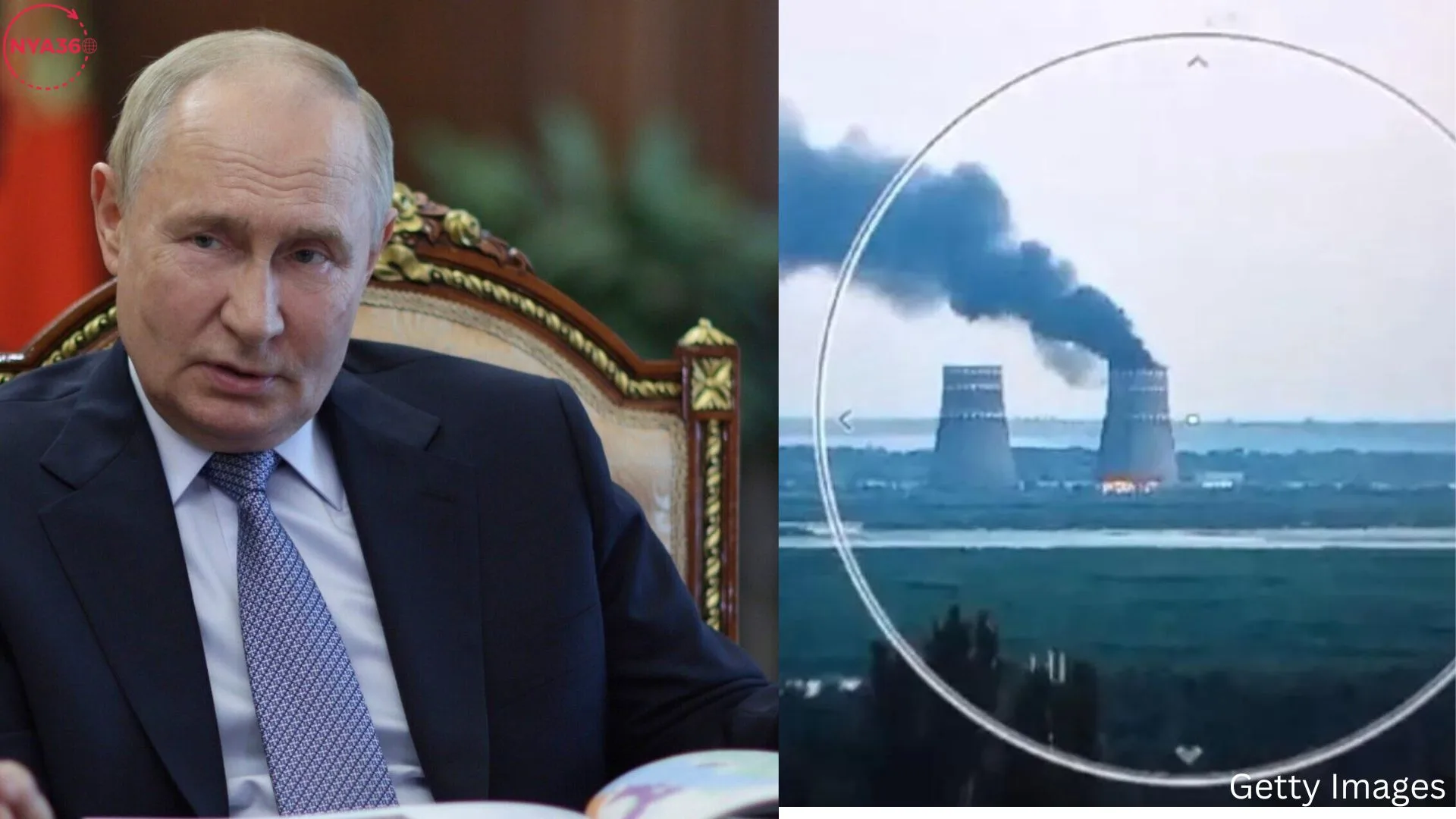The conflict in Ukraine has reached a crucial point, as Russia has instructed more than 180,000 individuals to leave the Kursk border area. At the same time, Ukrainian forces have regained authority over 28 towns and villages. This event signifies a notable intensification in the conflict, as the Ukrainian military penetrates Russian territory, heightening the risks in a war that has already caused numerous casualties and upset the worldwide geopolitical situation.
The relocation of 180,000 individuals from the Kursk region is one of the most significant population evacuations in the ongoing conflict. As per Alexey Smirnov’s statement to President Vladimir Putin and Russia’s senior security authorities during a televised meeting, over 120,000 individuals have already evacuated their residences, while a further 60,000 are currently awaiting evacuation. The magnitude of this mass departure highlights the gravity of the situation in Kursk, where the Ukrainian military’s aggressive actions have generated an atmosphere characterized by dread and unpredictability.
The logistical constraints of evacuating such many individuals should not be underestimated. The Russian government is currently facing the challenge of providing housing, sustenance, and healthcare for the displaced individuals, a significant number of whom have abandoned their residences and means of livelihood without a definite understanding of when, or even if, they would have the opportunity to go back. The images from the area elicit recollections of past instances of large-scale evacuations, in which innocent citizens caught amid armed conflict are compelled to abandon all their belongings in pursuit of safety.
The evacuation of Kursk is a distressing occurrence for the residents, causing significant disruption to their lives and destroying the feeling of normality that had managed to endure despite the continuous conflict. As a result of the violence, families are being forcibly divided, communities are being displaced, and the psychological impact on those impacted is expected to persist even after the battle concludes. This humanitarian disaster serves as a clear and striking reminder of the human toll of war, which reaches well beyond the actual combat zone and affects the lives of regular individuals.

The Ukrainian military’s recent achievements in the Kursk region signify a momentous strategic triumph. Retaking control of 28 towns and villages within Russian territory represents a significant accomplishment, demonstrating Ukraine’s increasing power and determination in response to Russian aggression. This operation not only alters the course of the war but also undermines Russia’s narrative of invulnerability, which has been a fundamental aspect of its propaganda endeavors.
The incursion into Kursk holds strategic ramifications that surpass the immediate confines of the battlefield. These achievements enhance Ukraine’s negotiation position by showcasing its capacity to recapture lost territory and resist Russian soldiers. Nevertheless, this achievement carries a price, as it jeopardizes the possibility of triggering additional escalation from Russia, which has already reacted by increasing the intensity of its language and adopting a more rigid position.
Russian President Vladimir Putin has announced the termination of all possible peace negotiations with Ukraine, adding to the complexity of the situation and reducing the chances of achieving peace. During the televised meeting, Putin expressed his disbelief at the prospect of engaging in a conversation with individuals who target innocent populations and nuclear installations. This comment signifies a notable change in Russia’s approach to the conflict, suggesting a shift from diplomatic involvement to a more assertive military posture.
Putin’s statements demonstrate his increasing exasperation with the Western countries, whom he accuses of employing Ukraine as a surrogate to engage in hostilities against Russia. “The West is engaging in combat against us through the involvement of Ukrainians,” Putin asserted, portraying the war as a larger battle against Western influence and interference. This narrative aims to provide a rationale for Russia’s ongoing military interventions in Ukraine while mobilizing domestic backing for the war endeavor.

The termination of peace negotiations indicates a bleak prospect for the conflict since it implies that both parties are now more resolute in pursuing their goals through the use of force rather than diplomatic discussions. For Ukraine, this entails persisting with its military offensive to regain territory and counter Russian encroachments. For Russia, this probably involves a renewed emphasis on suppressing Ukrainian opposition and establishing dominance over disputed territories.
The intensification of conflict in Kursk and the failure of peace negotiations have significant consequences for the worldwide geopolitical situation. The battle has expanded beyond the borders of Ukraine, as demonstrated by the Ukrainian military’s incursions into Russian territory. This development has the potential to attract the participation of other countries, either through direct engagement or by providing greater assistance to one of the parties involved.
The war has already caused significant strain in the relations between Russia and the West, as evidenced by the implementation of economic sanctions, diplomatic expulsions, and the provision of military aid to Ukraine, all of which have further intensified tensions. The recent events in Kursk are expected to deepen the divisions within the international community, as countries feel compelled to align themselves with either Russia or the Western nations in what is increasingly perceived as a proxy war.
With the battle in Ukraine transitioning into a new stage, the likelihood of achieving peace becomes increasingly remote. The mass exodus of 180,000 individuals from Kursk, the territorial advancements made by the Ukrainian military, and Putin’s refusal to engage in peace negotiations all indicate that the battle is still ongoing. The ongoing conflict has resulted in an increasing number of casualties, and the global community can only observe as the crisis develops, yearning for a solution that remains difficult to achieve.
Follow us on social media: Instagram, Threads & Twitter X @nya360_ Facebook & YouTube @nya360.





